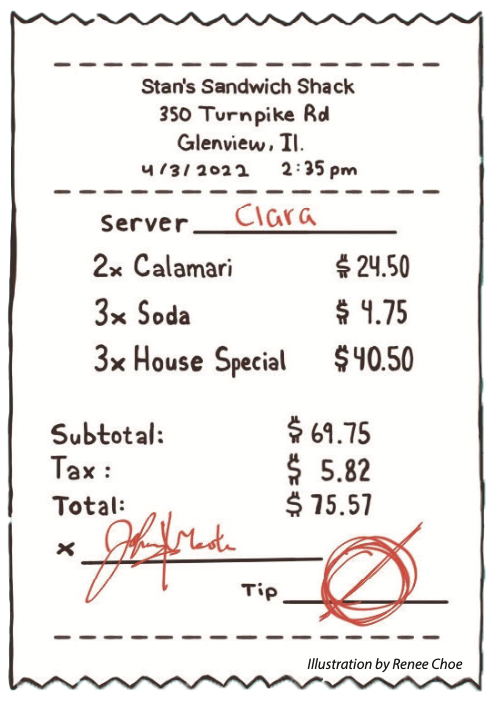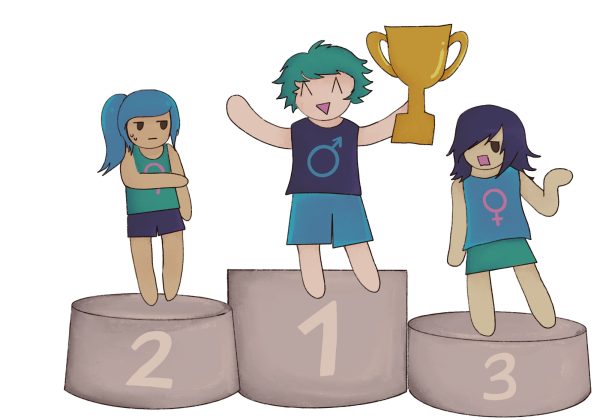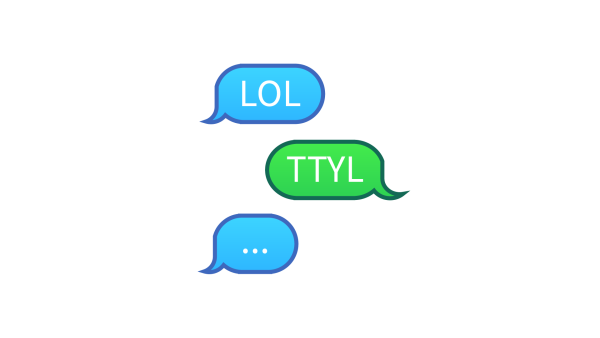Respecting service workers is a crucial common courtesy
April 25, 2022
The biggest turn-off someone can demonstrate when eating out is tipping the server less than what they deserve for their service.
Usually, the tipper follows up their lack of appreciation or etiquette with the phrase “they don’t deserve that much” or “they make enough.”
In reality, most servers or food service workers are making less than or close to minimum wage without tips.
In fact, 83 percent of service workers say their tips have decreased over-all since the start of the pandemic, a 2020 study conducted by One Fair Wage showed.
Treating food service workers with respect is necessary and can be demonstrated through tipping, using kind language, and remembering that the mistakes they make shouldn’t determine whether or not they receive gratuity.
Although seemingly trivial, expressing your gratitude for food service workers is highly valuable and appreciated by those who work to ensure your satisfaction.
Tipping is also a common courtesy and an efficient way to say “thank you” in American culture.
In today’s society, it’s incredibly easy to forget that although sitting down at a restaurant may be easy, fast, and convenient, there is always a group of people working hard to ensure the business stays functioning.
Their efforts should never go unnoticed or unappreciated.
Food service workers are people too, they are imperfect and inevitably will make mistakes. These mistakes should never determine whether or not they are leaving work feeling belittled or disrespected.
When I worked at a restaurant, I developed a mindset that forced me to always question my self-worth.
If I walked out of the restaurant with ten dollars less than what I usually made in tips, I would re-evaluate every situation in which I may have done something wrong or rather, not the way the customer would have preferred.
I often found myself making extreme efforts just to receive a 15 percent tip, which should never be the case.
The way my hair looked that day. The way I smelled. The way I smiled.
These were all factors that determined whether I would leave work satisfied with my amount in tips.
I would receive endless critiques and complaints regarding my efficiency or even attitude while attempting to serve multiple customers at once.
Another invalid argument for why a service worker wouldn’t deserve a tip would be because they were rude or lazy.
Working a food service job is difficult and exhausting, the expectation that a food service worker should be on their best behavior for the entirety of their shift is unrealistic.
I encourage anyone who enjoys indulging in eating out to consider that you are being served by humans.
All humans have off-days which shouldn’t dictate whether or not they are worthy of being appreciated for their time.
One day, I was asked if I knew how to do math after second-guessing myself when counting change. I made a face that expressed my distaste for this comment because, of course, I know how to do basic math.
The customer then looked back at me and simultaneously removed the tip they had placed in my already half-full tip jar.
I sighed. Ridiculous, I know.
However, this was not the first time someone had revoked their tip from my tip jar. Unfortunately, taking a longer than usual time to count change wasn’t the most questionable time someone had made an inappropriate and rude comment to my face. This situation, along with others, drove me to leave the food industry behind and search for a job that did not mean I would have to smile fakely through mistreatment.
I encourage you to re-evaluate your restaurant etiquette and next time you go out to eat, remember that behind your meal is someone who is working to ensure you are satisfied.
So leave a tip and say “thank you.” It goes a long way.













